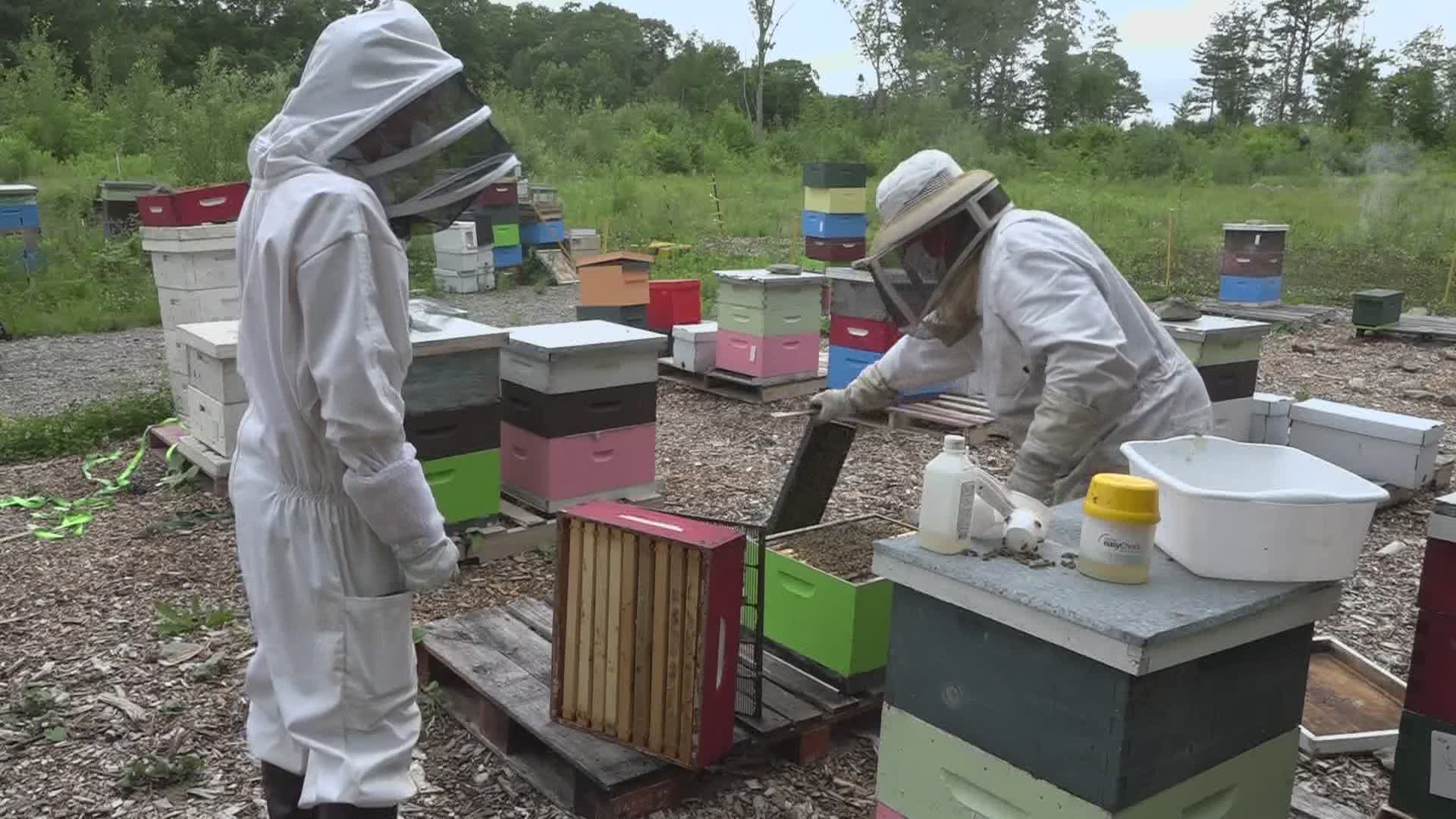HAMPDEN, Maine — A world without honey bees would....sting!
Bees give us more than honey. They transport pollen to flowers, and because of their pollination, we get fruit... like blueberries, apples, mangos, kiwi, peaches and a lot more.
Peter Cowin is better known as The Bee Whisperer. He says this year's bees look better than previous ones.
"As a state, we've done very well, 35% losses is the best we've done in some time. Previous three to four years will be more like 45% losses," Cowin said.
The professional beekeeper in Hampden says mites are the number one challenge that affects the honey bees. They transmit viruses to the bees, and beekeepers have to stop them before they kill the bees in the hive.
"Once the weather improved, we've had a very good flow of nectar and lots of pollen, so the bees have been able to grow very well," Cowin said.
One of the most important roles honeybees have is their pollination process.
"Many many different fruits require pollination roughly a third of everything we eat depends on pollination from honey bees," Cowin said.
For years, honey bees have been facing a number of challenges.
"We have to keep an eye out on mite levels," Cowin said.
"There is no way you can absolutely obliterate every single mite, there is various ways you can deal with them," Judith Stanton, the vice president of Maine State Beekeepers Association, said.
Friday morning, Cowin sacrificed some honey bees by putting them in alcohol, an effective method that can show him if mites are inside the hives.
"It's really hard to get rid of them 100%, If you can keep below the threshold you bees usually can overcome the mite's influence on the bees and you can keep your give healthy," Stanton said.
Even though the sample had few mites, Cowin says he will treat the hives with Integrated Pest Management so that the bees can stay strong and healthy.
Mites transmit viruses to the bees, which weakens them. If beekeepers don't control them, all of the bees in the hive will end up dying.
"A lot of plants were blooming with nectar in them, but it was too cold for the bees to get out and forage the nectar," Stanton said.
But there are ways you can help keep the bee population up!
"Let the grass grow a little bit longer, and let those plants like clovers and dandelions grow...the produce a huge amount of nectar and pollen just when the bees really need it the most," Cowin said.
Planting pollinator plants, leaving your grass tall, and not applying pesticides can greatly help the bee population stay up.
The Bee Whisperer has produced hundreds of colonies for anyone interested in starting their own hive. He also sells different flavors of local honey.
"A lot of bees were dying so it brought a lot of interest to the hobby of beekeeping, people want to save the bees," Stanton said.
For local honey, or to start your own beehive, Peter Cowin or "The Bee Whisperer" can be reached at (207) 299-6948, contacted via email at petercowin@tds.net, or through his Facebook page.

